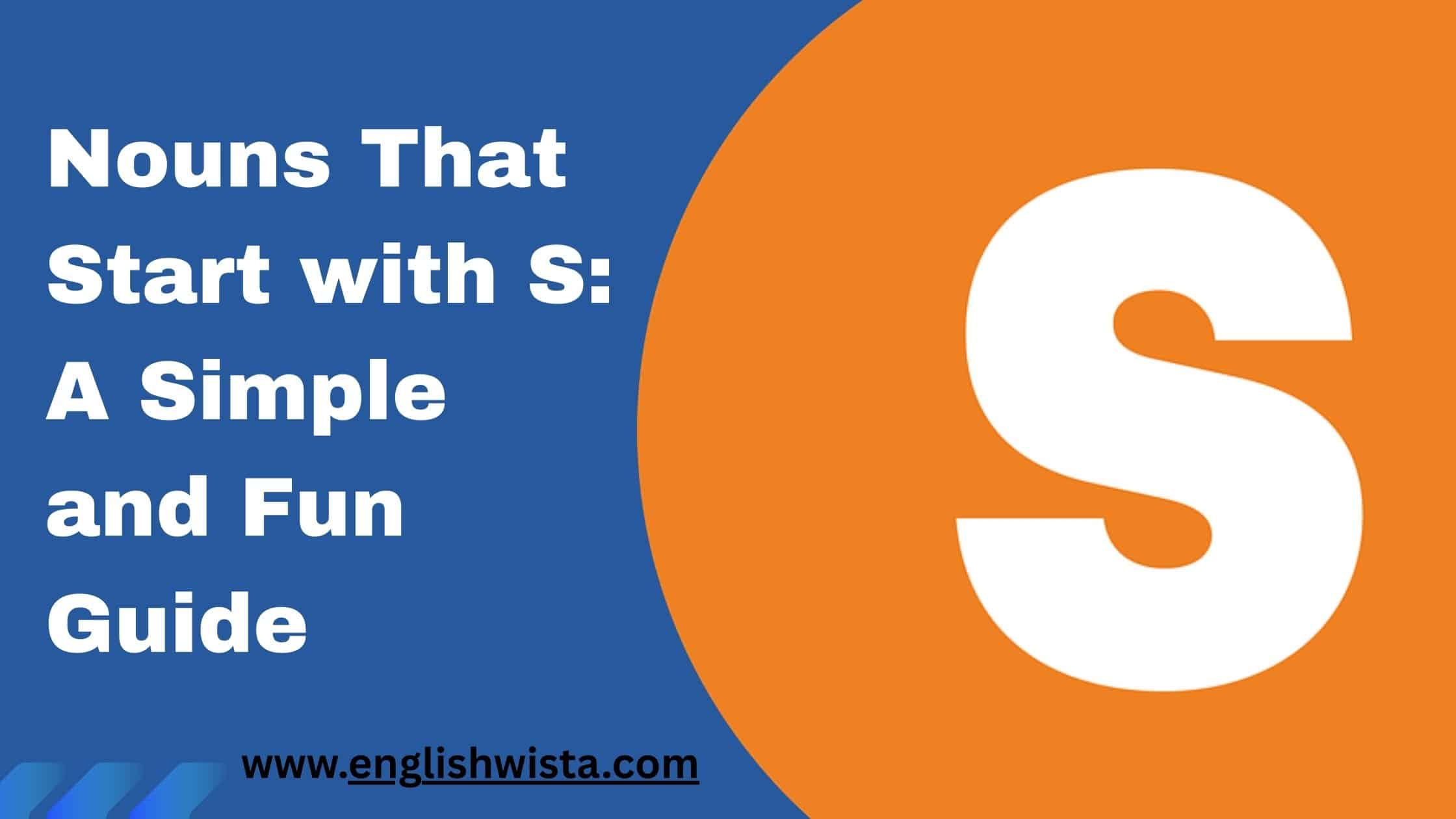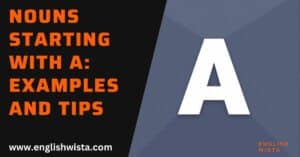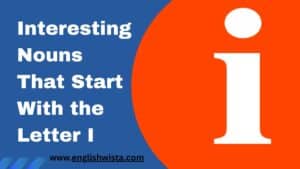Have you ever noticed how many words in English begin with the letter S? From everyday objects like shoes and sandwiches to big ideas like strength and success, the letter S seems to pop up everywhere. It’s one of the most commonly used letters in the English alphabet, which makes it extra fun to explore.
In this article, we’re going to take a friendly tour of nouns that start with S. Don’t worry if you’re new to English or if grammar sometimes feels confusing. I’ll explain everything step by step, using simple language, clear examples, and a conversational style like we’re sitting together with a cup of tea. By the end, you’ll not only understand nouns better but also build a long list of useful “S” words that you can use every day.
So, let’s get started!
What Is a Noun? (Quick and Easy Definition)
Before diving into nouns that start with S, let’s quickly review what a noun is. A noun is simply:
- A person (sister, singer, scientist)
- A place (school, station, Spain)
- A thing (sandwich, spoon, soap)
- Or even an idea (strength, safety, silence)
That’s it! If you can name it, it’s probably a noun.
Why Focus on Nouns Starting with S?
You might be asking, “Why S?” Good question! Here are a few reasons:
- Common letter: S is one of the most frequently used letters in English.
- Easy to spot: Words starting with S often sound sharp and clear, like snake or star.
- Practical: Many daily objects and ideas begin with S, so learning them gives you vocabulary you can actually use.
Common Categories of S Nouns
Let’s break our nouns into easy groups so you can remember them better.
People and Roles
- Student – The person who studies in school.
- Singer – Someone who sings.
- Soldier – A person in the army.
- Scientist – Someone who studies science.
Example sentences:
- My sister is a student at the university.
- The singer performed beautifully on stage.
Places
- School – Where children go to learn.
- Station – Where trains or buses stop.
- Shop – A place where you buy things.
- Sea – A large body of salty water.
Example sentences:
- We waited at the station for the train.
- The children played by the sea all afternoon.
Things and Objects
- Shoes – Something you wear on your feet.
- Spoon – A tool for eating soup.
- Soap – Used for washing.
- Suitcase – A bag for travel.
Example sentences:
- I packed my suitcase for the trip.
- Please pass me the spoon for my soup.
Ideas and Qualities
- Strength – The power to do something.
- Safety – The state of being safe.
- Silence – No sound.
- Success – Reaching your goal.
Example sentences:
- She showed great strength during the challenge.
- Hard work often leads to success.
Is “S” for Singular or Plural?
Here’s a fun detail: in English, the letter S is also commonly used to make nouns plural.
- One shoe, two shoes.
- One student, many students.
- One star, several stars.
This can confuse learners. Just remember: not every noun that starts with S is plural. Some are singular nouns that simply happen to begin with the letter S.
Origins of Some “S” Words
Many S nouns come from Latin, French, or Old English. Let’s look at a few interesting ones:
- School – From the Greek word scholē, meaning “leisure for learning.”
- Soap – Comes from Old English sāpe.
- Star – From Old English steorra, linked to the German word Stern.
Isn’t it cool how words travel through history and change a little before reaching us?
Real-Life Practice with S Nouns
Let’s try some mini-exercises together.
Spot the S Noun
In each sentence, which noun starts with S?
- The sun is shining brightly.
- She put sugar in her tea.
- My suitcase is very heavy.
Answer: sun, sugar, suitcase.
Make Your Own Sentence
Pick one word from this list and make a sentence:
- Sand
- Street
- Salad
- Summer
Example: We ate fresh salad during the summer.
Fun Facts About S Nouns
- Snake and snail are examples of nouns where the “sn” sound feels slippery or slow matching the animal!
- The word smile can be both a noun (Her smile is beautiful) and a verb (She smiles every day).
- The noun season has four main meanings: spring, summer, autumn, winter. But it can also mean “a time period” like football season.
A Longer List of Useful S Nouns
Here’s a handy vocabulary list for quick reference:
- Animals: sheep, shark, squirrel, spider, swan
- Food: soup, sandwich, sausage, spinach, sugar
- Objects: scissors, screen, shelf, sock, smartphone
- Nature: sky, snow, storm, sand, stone
- People: sailor, speaker, stranger, supervisor, surgeon
- Abstract Ideas: skill, style, spirit, surprise, solution
Try picking 5 new words each week and using them in your daily conversations!
Common Confusions with S Nouns
Sometimes learners mix up nouns with similar sounds. Here are a few to watch out for:
- Sea vs. See: Sea is water, see is the verb “to look.”
- Son vs. Sun: Son is a child (male), sun is the star in the sky.
- Sale vs. Sail: Sale is buying/selling, sail is what boats use.
Tip: Practice by writing small sentences with each word so you don’t mix them up.
Putting It All Together
By now, you’ve seen that nouns starting with S are:
- Easy to find in daily life.
- Useful for talking about people, places, things, and ideas.
- Sometimes tricky when it comes to plurals or sound-alike words.
Learning them step by step makes everything less overwhelming.
Conclusion
We’ve gone on a fun little journey through the world of nouns starting with S. From students in a school to the stars in the sky, S nouns surround us every day. You now know what nouns are, how to spot them, and how to use many S words in real sentences.
The best way to remember them is simple: practice a little each day. Use new S nouns in your conversations, write them in a notebook, or even play word games with friends.
So next time you see the sun, hear a song, or enjoy a sandwich, you’ll know you’re spotting another great noun that starts with S. Keep exploring, keep smiling, and soon your vocabulary will shine with success!



